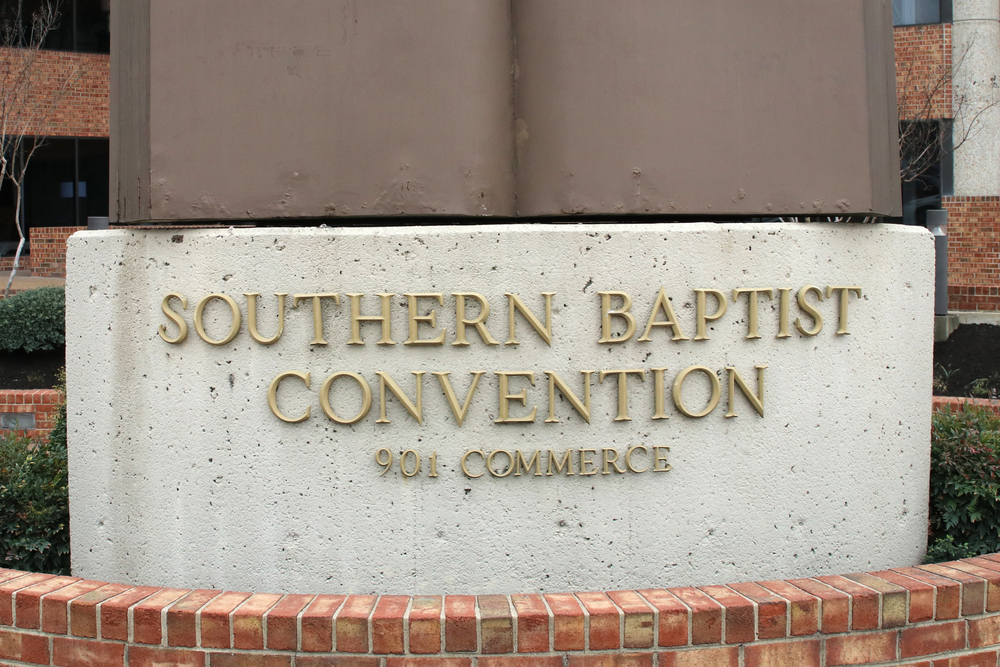As countless organizations, including the Boy Scouts and the Catholic Church, face accusations of sexual abuse, the Southern Baptist Convention has begun to take investigations of accusations of sexual abuse seriously. After decades of inaction and victim-blaming, the road forward for sexual abuse survivors at the hands of clergy and volunteers of the Southern Baptist Convention (SBC) has become clearer.
It is estimated that there are more than 47,000 Southern Baptist churches across the U.S. Since 1998, more than 375 Southern Baptist church leaders and volunteers have been accused of sexual misconduct. These include pastors, ministers, youth pastors, Sunday school teachers, deacons and church volunteers. Many Southern Baptist church sexual abuse survivors allege that those in positions of power used their power over vulnerable populations like children and teens. Around 220 Southern Baptist church leaders and volunteers have been arrested, convicted or took plea deals. Dozens of cases are still active in the legal system. Survivors hope for justice but know they may not find it.
In their wake, there are more than 700 survivors. Many of these survivors were adolescents at the time of the sexual abuse. It has been reported some victims were as young as three years old. In various lawsuits, church leaders denied that they were responsible for sexual abuse or those accused of sexual abuse. Over the last few decades, proposals have been made to the Southern Baptist Convention Executive Committee to handle these accusations and investigate. But at the heart of the matter, Southern Baptist churches have local autonomy. The Executive Committee has very little authority to compel churches to report sexual abuse to a registry. This means that many accused of sexual abuse simply move to a different church without consequence.
Southern Baptist Convention Paves Way Forward
Held in June 2021 in Nashville, the Southern Baptist Convention’s annual conference paved the way forward for many sex abuse survivors. SBC confirmed its commitment and approval of a third-party audit of sexual abuse allegations. This decision was a long time coming and was nearly unanimously approved by delegates. An investigation into the potential coverup by SBC’s Executive Committee was authorized at the annual conference.
Discussion of Attorney-Client Privilege
Not approved at the annual conference, but discussed, was whether the Executive Committee would waive attorney-client privilege and permit Guidepost Solutions access to communications and materials between the Executive Committee and their attorneys. Later it was announced the SBC would not allow Guidepost Solutions access to these materials. According to sexual abuse survivors and the task force overseeing the investigation, not waiving attorney-client privilege would lead to an incomplete and limited investigation.
SBC originally hired Guidepost Solutions to investigate how it handled sexual abuse claims after several high-profile letters were leaked to the public. At the time, Russell Moore, the former SBC’s public policy head, released two letters to the public which detailed the mishandling of abuse claims, intimidation tactics used against survivors and details about the mistreatment of the survivors.
During the SBC conference, voting delegates raised concerns on whether the Executive Committee could complete a thorough and proper investigation of itself. A task force was appointed by newly appointed SBC President Ed Litton, consisting of seven members.
Litton shared this during a recent event. “We’re tired of abuse, and it has to be dealt with...But I also think a clear message came out that this is not a witch hunt. That this is an opportunity for us to pave the way for the future.”
Two months into the task force, they have achieved two outcomes: hiring Guidepost and asking the Executive Committee to waive attorney-client privilege. Task Force Chair Rev. Bruce Frank shared this during a recent event, “it’s all about uncovering the truth so we can deal with it.”
Attorney and sexual abuse advocate Rachael Denhollander, an adviser to the task force, shared the identifying, recognizing and knowledging the truth is essential to making effective and meaningful change. “If the executive committee decides not to waive privilege, then they are sending a clear message that they’re rejecting accountability and transparency,” she shared with AP News.
Since attorney-client privilege was not waived, the onus would be placed on the sexual abuse survivors. Miss Woodson shared that if attorney-client privilege was not waived, “how many times do we have to come forward and tell our stories over and over and over again?”
Support for Sex Abuse Survivors
As organizations like Southern Baptist churches, Boy Scouts of America and Catholic churches continue to make progress against those accused of sexual abuse, those who have experienced childhood sexual abuse live with the legacy of abuse.
If you or a loved one experienced sexual abuse or sexual assault as a child, support is available from advocacy organizations like 1in6, RAINN and MaleSurvivor. These organizations offer ways to find specialized therapists, 24/7 anonymous chat helplines and peer support.
Seeking legal advice can also help those who have experienced sexual abuse seek justice against their perpetrators and healing. Sexual abuse is horrific and continues to occur to thousands, including children, through no fault of their own. Changes to the statute of limitations and look-back windows present opportunities for healing and place justice back into survivors.












